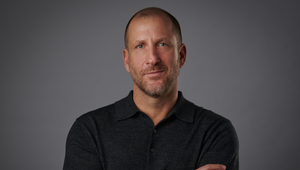
NABs’ Consultation Report Unveils Urgent Need for Practical and Prioritised Mental Wellness Support

After five months of deep investigation across the industry, NABS today reveals the findings from All Ears, its community consultation. This substantial research project gives a deep and up-to-date picture of the state of mental wellness in our industry.
Demand for NABS’ services has increased by 66% over the past three years. Emotional support has consistently been the top reason for people contacting the charity, with calls relating to mental health specifically having risen over the past few years.
All Ears’ findings reveal an industry in need of practical, inclusive mental wellness support. Crucially, systemic change needs to happen, whereby mental health needs are embedded into our industry’s culture, and made a priority long-term.
The report also paints a picture of an industry community at the sharp end of change. Tight deadlines and commercial pressures add to this sense of uncertainty, creating an atmosphere in which mental wellness challenges can brew. Mutual stereotyping is amplifying more superficial differences in language and behaviour.
NABS, already at the forefront of advancing mental wellness in adland, will now use these insights to evolve its services and advocate for the sector to lean in more to ensure long lasting cultural change.
Sue Todd, CEO, NABS, says: “It’s clear from this consultation that, despite significant inroads and efforts to change the conversation and support the mental wellness of our sector, there is much for us all to do. Policies are not enough. We need consistent good practice, and we need to work harder to create environments where all voices are heard and all individuals are comfortable to seek help when they are struggling.
“We need to come together as a sector to help our community to thrive. We encourage everybody to read the All Ears report and to work with NABS to support our people into the future.”
All Ears’ five key findings are: The mental wellness conversation needs to open up. Leaders who show vulnerability in discussing their mental wellness can drive positive culture change. Yet half of C-suite or department heads still worry that discussing their mental health could impact on their career. Meanwhile, 39% of early careers respondents were unlikely to share their experiences due to concern regarding colleagues’ reactions. Overall, just 35% of respondents feel unable to discuss mental wellness in the workplace and 46% of LGBTQ+ respondents feel like they can be themselves at work, contrasted with 69% of straight respondents.
Respondents who have suffered, or are currently suffering, from mental wellness conditions that affect their ability to work feel the least optimistic about the direction of the dialogue around mental wellness.
The gap between policy and practice is widening.
Many businesses in our industry have launched supportive policies and initiatives. Some of these have been effective. However, often initiatives are not implemented. Respondents highlighted the disconnection between policies and practice. In our research we spoke to two organisations in the industry who evaluated their policies and initiatives. In both cases, the organisations over-estimated the impact of the work they had been doing. There is a common perspective that more energy goes into the creation and launching of these initiatives than into embedding them.
There are broken steps on the management ladder. Too many people are funnelled into management positions without the required training. In total, 42% of people experiencing mental wellness issues would take them to their line manager first - despite a widespread awareness that managers were not always prepared with the best way to respond and able to signpost or suggest an appropriate next step.
Remote and hybrid working are creating both tension and opportunity. Back-to-back video calls and a blurring of boundaries create pressure on mental wellness, although being at home creates greater flexibility and a more manageable home life blend for many. Mandated returns to the office are a common source of stress. Just under two-fifths of senior managers believe we have the tools to manage high workloads, while just over a quarter believe we have the right tools and practices to collaborate effectively.
We have a lived experience gap, not a generation gap. People experience this industry differently, and this directly impacts their mental wellness. Both newer entrants to the industry and senior leaders are equally likely to stereotype each other, and to find frustration with each other based on these assumptions. As the industry becomes more diverse, this is becoming more of an issue, leading to stress and anxiety in many employees.
Lorraine Jennings-Creed, director of wellbeing services and culture change, NABS, says: “The report emphasised that mental wellness is a connecting thread, not a competing issue.
“Despite a good understanding across industry about the importance of mental wellness, it can lose out on the list of priorities to commercial and other more measurable issues. The danger implicit in this is that it is precisely in those situations where commercial pressure is likely to be greatest that acute mental wellness issues are most likely to emerge.”
In total, 1200 people were interviewed for All Ears, 67 of whom shared their thoughts in deep focus-group conversations.













